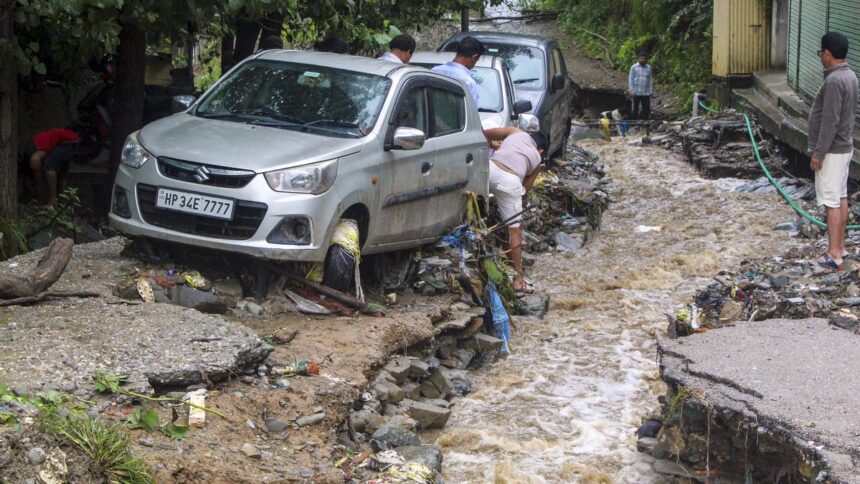
A board displayed to create awareness about Amoebic Meningoencephalitis seen on the way to a pond at Navaikulam village in Thiruvananthapuram. File
| Photo Credit: The Hindu
The Health Department has invoked the Kerala Public Health Act of 2023 in launching preventive and control measures against amoebic meningoencephalitis, which is now emerging as a new public health concern for the State.
Amoebic meningoencephalitis is now a public health concern as it emerges that all waterbodies — wells, ponds, canals, swimming pools, or pools in resorts and water theme parks — could be a potential source of amoebic infection for people using these, unless these are regularly cleaned and maintained in good condition.
Recognising this new threat to public health, the Government had on Monday (August 25, 2025) announced a mass State-wide campaign involving local bodies, the Health and Water Resources department and the Haritha Kerala Mission to immediately clean and chlorinate all wells, swimming pools and huge water storage tanks.
The ponds and other water bodies that people normally use for bathing are also to be cleared of all algae and garbage and all channels carrying waste or contaminants to these bodies had to be closed.
On Wednesday (August 27, 2025), the Director of Health Services, K.J. Reena, who is the State Public Health Officer, thus found it necessary to invoke various provisions of the Kerala Public Health Act to ensure that there is no laxity on the part of responsible parties when it comes to keeping the public swimming pools, pools in resorts, hotels, water theme parks and apartments clean and the water chlorinated to sufficient levels.
Dr. Reena has issued orders under Sections 7(5), 10 (b) and 10 (c) of Kerala PH Act 2023 that the management of all resorts, hotels, water theme parks and swimming training centres chlorinate the pool water daily. They should check the chlorine levels daily, which should be noted in a special register.
These registers will have to be kept safe and produced whenever any authorised officials deputed by the panchayat secretary or regional public health officer concerned demands the same .
Violation of these directions will invite serious legal measures under the Kerala Public Health Act

So far, 41 cases of amoebic meningoencephalitis have been reported in the State this year, with 18 active cases in hospitals under treatment. The State has been picking up almost every case of amoebic encephalitis after the Health department issued the directive last year to all clinicians that the cerebrospinal fluid samples of all patients suspected to be having meningitis be tested for amoebic brain infection also.
Till now, it was believed that only people using the local ponds and canals for bathing or swimming were susceptible to amoebic meningoencephalitis.
While it has always been known that free-living amoeba like Accanthamoeba and Balamuthia are widely present in the environment, it was the recent crop of amoebic infections in people who have used only water from household wells which pointed to the grim fact that the water bodies in the State could be posing a public health threat, necessitating a massive cleaning campaign.
The DHS has directed that any wastewater channels reaching water bodies in the State be eliminated immediately. Solid waste disposal in water bodies should be prevented strictly.
All official agencies involved in water supply and distribution like the Kerala Water Authority and Jalanidhi should ensure that residual chlorine levels in the water distribution systems everywhere should be maintained at 0.5mg/litre.
All regional public health officers and authorised officials have been directed to ensure that cleaning and chlorination activities are taking place on a regular basis and to take legal measures under KPHA against those who fail to observe the directives issued in interest of public health.
Published – August 27, 2025 10:22 pm IST





















